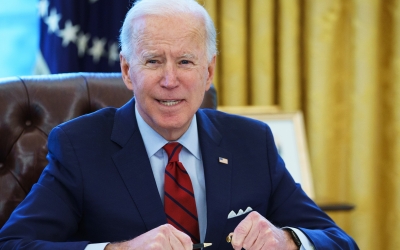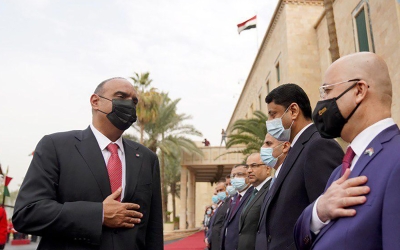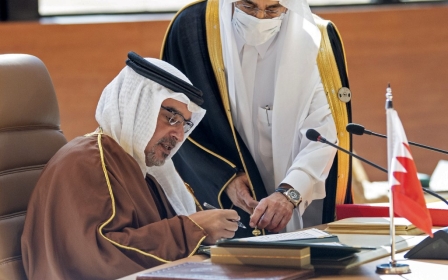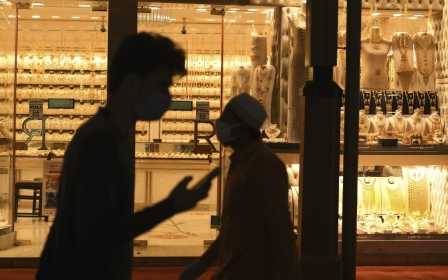Arabic press review: The secret Saudi-Emirati conflict over Khashoggi
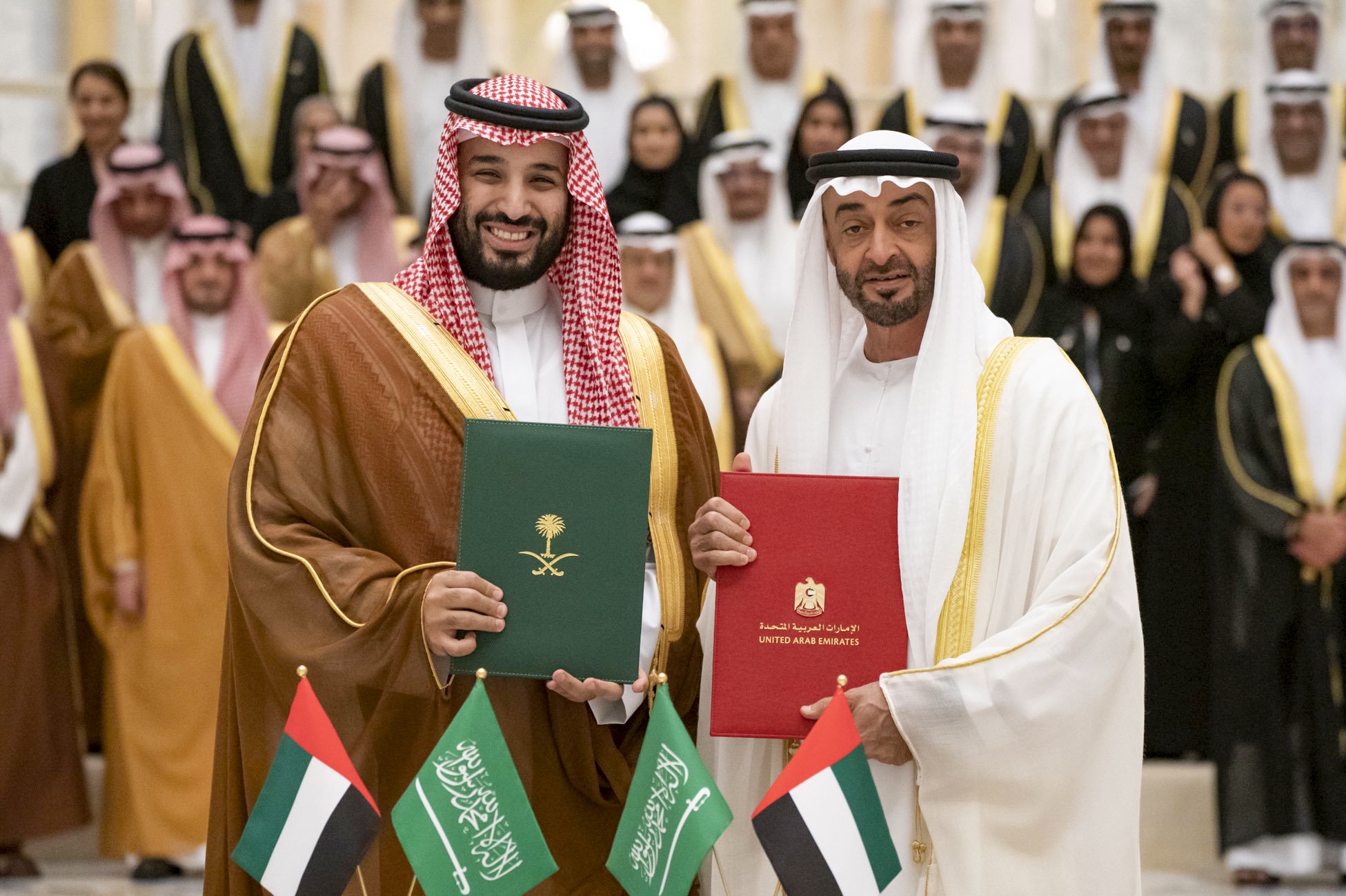
Abu Dhabi did not meet Riyadh expectations in Khashoggi crisis
Leaked documents have shed light on a secret disagreement between Saudi Arabia and the United Arab Emirates (UAE) following the diplomatic crisis that Riyadh faced after the assassination of journalist Jamal Khashoggi at the kingdom's consulate in Istanbul in 2018, the Lebanese newspaper Al Akhbar has reported, quoting the leaked documents.
New MEE newsletter: Jerusalem Dispatch
Sign up to get the latest insights and analysis on Israel-Palestine, alongside Turkey Unpacked and other MEE newsletters
Stamped “very confidential”, the documents relate to messages sent by Emirati national security adviser Tahnoun bin Zayed to Minister of Foreign Affairs Abdullah bin Zayed, in which he points to Saudi Arabia's anger at the way the UAE has dealt with the Khashoggi crisis.
The report said that Saudi Arabia’s uneasiness was caused by the ambiguity of Abu Dhabi's political position. Many officials close to Crown Prince Mohammed bin Salman (MBS) thought Abu Dhabi's political and security leaders did not take a strong enough position in defence of Riyadh, at a time when MBS was facing severe criticism.
The report also highlighted a growing resentment among Saudi academics and the kingdom's political and security elite towards the UAE.
“Even in private councils and state employees’ offices, talks are circulating about the UAE implicating the Saudi Crown Prince, directly or indirectly, turning him into an impulsive person who deviates from the traditions of the Saudi political school, which is based on patience, endurance and tolerance,” the report read.
Saudi Arabia’s debt increased 21-fold in six years
Official figures and data have shown that Saudi Arabia’s debt has got 21 times larger in just six years, as the kingdom has lost more than half a trillion dollars since King Salman came to power at the beginning of 2015, according to documents obtained by Arabi21.
Over the past six years, Riyadh has borrowed over $238.2bn from foreign sources and withdrawn $278.3bn from the general reserve assets, according to figures based on Saudi government and Saudi Central Bank (SAMA) data.
The latest SAMA report showed that the kingdom's foreign exchange reserve assets decreased to 1.701tn Saudi riyals ($453.66bn) by the end of December 2020.
The report indicated that the kingdom's foreign exchange reserve assets had decreased by just over nine percent by the end of 2020 over the course of a year, a drop of 172.2bn Saudi riyals ($45.92bn) compared to 2019.
Saudi Arabia lost $50bn of its foreign exchange reserves in March and April, of which $40bn were transferred to the Public Investment Fund (the state's sovereign wealth fund) due to the devastating impact of the coronavirus pandemic.
Reports published by SAMA indicate that total reserve assets amounted to $732bn at the end of 2014, implying that the Saudi reserves have decreased by more than 38 percent between January 2015, when King Salman took power, and December 2020, according to Arabi21.
It is noteworthy that the net value of foreign assets of the Saudi Central Bank decreased by about $27bn last March compared to the previous month. This represents the fastest decline recorded in at least 20 years, indicating that the kingdom urgently needs to exploit its reserves to offset the economic damage resulting from the drop in oil prices and the severe slowdown in all non-oil economic sectors due to the pandemic.
Rights group says Bahrain denied children nationality
A report issued by Americans for Democracy & Human Rights in Bahrain (ADHRB) revealed that authorities in Bahrain have deprived a number of Bahraini children, who are less than four years old, of their right to the nationality of their Bahraini parents, preventing them from travel, reported Al-Quds Al-Arabi newspaper.
The report revealed the suffering of four children of Bahraini parents, who were arbitrarily deprived of their nationality by the government in order to indirectly punish their parents for peaceful anti-government activities, according to the newspaper.
"While Bahrain is on top of the list of countries that naturalise foreigners, it is depriving children of Bahraini origins of their country's passports,” the report said.
“There are no legal or humanitarian grounds for this conduct. On the contrary, the children’s rights are being violated on many levels, including their right to nationality, health, education, movement, etc.”
ADHRB believes the arbitrary move is part of a pattern, with the government denying Bahraini children citizenship because their parents had fled Bahrain for fear of prosecution on terrorism charges. Consequently, it said, the children are unlawfully criminalised for acts they did not commit.
Commodity prices rocket in Jordan
The price of many basic foodstuffs in Jordan, including vegetable oil, rice, sugar, chicken and meat, has increased by 30 percent, reported The New Arab newspaper.
Jordanian merchants said the increase in prices is caused by the rise in the cost of commodities in world markets and in the countries from which Jordan imports goods, according to the newspaper.
Chairman of the Jordan National Society for Consumer Protection, Mohammad Obeidat, told The New Arab that the prices of various food items have recently increased significantly on the local market, especially vegetable oil, chicken, vegetables and fruits.
Obeidat added that this rise is due to several reasons, including the practices of some merchants and their exaggerated reflection of global prices on local goods, as well as government measures to prevent importing from abroad under the pretext of protecting local products, despite increasing rates of consumption.
Obeidat stressed the need to resume import activities, tighten control on trade transactions, fix the prices of goods and reconsider the taxes and customs duties imposed on some products.
According to the latest official data released by the Central Bank of Jordan, general price levels recorded an inflation of 4 percent during the first 11 months of last year, compared to 8 percent for the same period in 2019.
*Arabic press review is a digest of reports that are not independently verified as accurate by Middle East Eye
Middle East Eye delivers independent and unrivalled coverage and analysis of the Middle East, North Africa and beyond. To learn more about republishing this content and the associated fees, please fill out this form. More about MEE can be found here.


